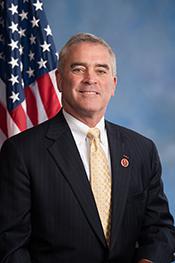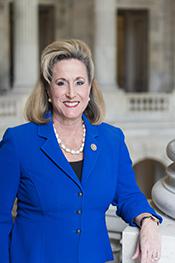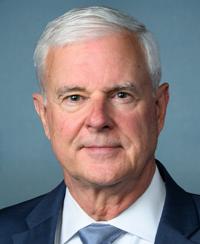0
0
0
New Markets Tax Credit Extension Act of 2023
1/31/2024, 8:15 AM
Summary of Bill HR 2539
Bill 118 HR 2539, also known as the New Markets Tax Credit Extension Act of 2023, is a piece of legislation currently being considered by the US Congress. The bill aims to extend the New Markets Tax Credit (NMTC) program, which was originally established in 2000 to incentivize investment in low-income communities.
The NMTC program provides tax credits to investors who make qualified investments in designated low-income areas, known as "qualified low-income communities." These tax credits help attract private investment to these communities, stimulating economic development and creating jobs.
The New Markets Tax Credit Extension Act of 2023 proposes to extend the NMTC program for an additional five years, through 2028. This extension would provide certainty to investors and communities that rely on the program for economic development. Supporters of the bill argue that the NMTC program has been successful in revitalizing distressed communities and creating jobs. They believe that extending the program will continue to spur investment in underserved areas and promote economic growth. Opponents of the bill may argue that the NMTC program is costly and inefficient, and that the tax credits primarily benefit wealthy investors rather than the communities they are intended to help. They may also raise concerns about the potential for abuse or fraud in the program. Overall, the New Markets Tax Credit Extension Act of 2023 is a significant piece of legislation that has the potential to impact economic development in low-income communities across the United States. Its fate will ultimately be decided by Congress in the coming months.
The NMTC program provides tax credits to investors who make qualified investments in designated low-income areas, known as "qualified low-income communities." These tax credits help attract private investment to these communities, stimulating economic development and creating jobs.
The New Markets Tax Credit Extension Act of 2023 proposes to extend the NMTC program for an additional five years, through 2028. This extension would provide certainty to investors and communities that rely on the program for economic development. Supporters of the bill argue that the NMTC program has been successful in revitalizing distressed communities and creating jobs. They believe that extending the program will continue to spur investment in underserved areas and promote economic growth. Opponents of the bill may argue that the NMTC program is costly and inefficient, and that the tax credits primarily benefit wealthy investors rather than the communities they are intended to help. They may also raise concerns about the potential for abuse or fraud in the program. Overall, the New Markets Tax Credit Extension Act of 2023 is a significant piece of legislation that has the potential to impact economic development in low-income communities across the United States. Its fate will ultimately be decided by Congress in the coming months.
Congressional Summary of HR 2539
New Markets Tax Credit Extension Act of 2023
This bill makes the new markets tax credit permanent. It also modifies the credit to (1) provide for an inflation adjustment to the limitation amount for the credit after 2023, and (2) allow an offset against the alternative minimum tax for the credit (determined with respect to qualified equity investments initially made after 2022).
Read the Full Bill
Current Status of Bill HR 2539
Bill HR 2539 is currently in the status of Bill Introduced since April 6, 2023. Bill HR 2539 was introduced during Congress 118 and was introduced to the House on April 6, 2023. Bill HR 2539's most recent activity was Referred to the House Committee on Ways and Means. as of April 6, 2023
Bipartisan Support of Bill HR 2539
Total Number of Sponsors
1Democrat Sponsors
0Republican Sponsors
1Unaffiliated Sponsors
0Total Number of Cosponsors
198Democrat Cosponsors
76Republican Cosponsors
122Unaffiliated Cosponsors
0Policy Area and Potential Impact of Bill HR 2539
Primary Policy Focus
TaxationAlternate Title(s) of Bill HR 2539
New Markets Tax Credit Extension Act of 2023
New Markets Tax Credit Extension Act of 2023
To amend the Internal Revenue Code of 1986 to permanently extend the new markets tax credit, and for other purposes.
Comments
Sponsors and Cosponsors of HR 2539
Latest Bills
Providing amounts for the expenses of the Committee on Ethics in the One Hundred Nineteenth Congress.
Bill HRES 131December 12, 2025
Providing for congressional disapproval under chapter 8 of title 5, United States Code, of the rule submitted by the Bureau of Land Management relating to "Central Yukon Record of Decision and Approved Resource Management Plan".
Bill HJRES 106December 12, 2025
Expressing the sense of the House of Representatives in condemning the Government of the People's Republic of China for its harassment and efforts to intimidate American citizens and other individuals on United States soil with the goal of suppressing speech and narratives the People's Republic of China finds unwelcome.
Bill HRES 130December 12, 2025
Providing for congressional disapproval under chapter 8 of title 5, United States Code, of the rule submitted by the Bureau of Land Management relating to "North Dakota Field Office Record of Decision and Approved Resource Management Plan".
Bill HJRES 105December 12, 2025
Providing for congressional disapproval under chapter 8 of title 5, United States Code, of the rule submitted by the Bureau of Land Management relating to "Miles City Field Office Record of Decision and Approved Resource Management Plan Amendment".
Bill HJRES 104December 12, 2025
Providing amounts for the expenses of the Select Committee on the Strategic Competition Between the United States and the Chinese Communist Party in the One Hundred Nineteenth Congress.
Bill HRES 104December 12, 2025
Critical Access for Veterans Care Act
Bill S 1868December 12, 2025
OATH Act of 2025
Bill S 1665December 12, 2025
A bill to extend the authority for modifications to the Second Division Memorial in the District of Columbia.
Bill S 1353December 12, 2025
Saving Our Veterans Lives Act of 2025
Bill S 926December 12, 2025
New Markets Tax Credit Extension Act of 2023
Bill S 234March 13, 2024





